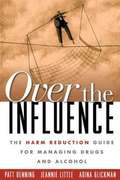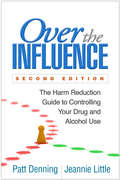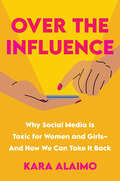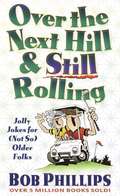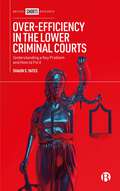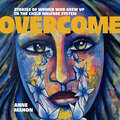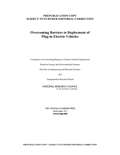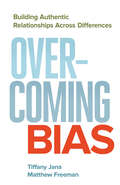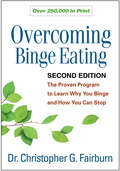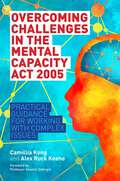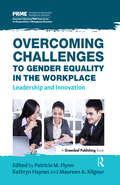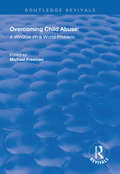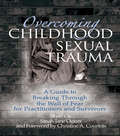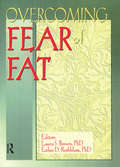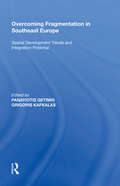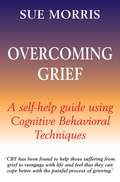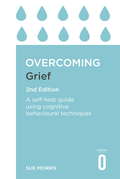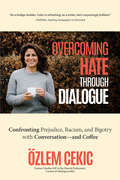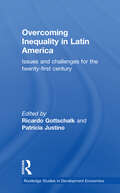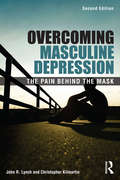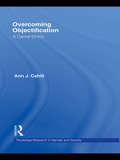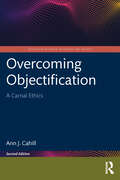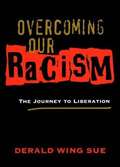- Table View
- List View
Over the Edge: Stories and Essays
by Harlan EllisonOver the Edge, a collection of twelve short stories and essays from Harlan Ellison, is a must-read for any fan of the wild abandon and laser focus of one of the century's most brilliant authors. Complex, alluring, audacious, sublime--it is not hyperbole when applied to the Hugo and Nebula Award-winning author whom the Washington Post calls "one of the great living American short story writers."
Over the Influence
by Patt Denning Jeannie LittleTwelve-step programs that insist on abstinence are beneficial to many--but what about the millions of Americans who try to quit and fail, just want to cut down, or wish to work toward sobriety gradually? This groundbreaking book presents the Harm Reduction approach, a powerful alternative to traditional treatment that helps users set and meet their own goals for gaining control over drinking and drugs. The expert, empathic authors guide readers to figure out which aspects of their own habits may be harmful, what they would like to change, and how to put their intentions into action while also dealing with problems that stand in the way, such as depression, stress, and relationship conflicts. Based on solid science and 40+ years of combined clinical experience, the book is packed with self-discovery tools, fact sheets, and personal accounts. It puts the reader in the driver's seat with a new and empowering roadmap for change.
Over the Influence, Second Edition: The Harm Reduction Guide to Controlling Your Drug and Alcohol Use
by Patt Denning Jeannie Little"Just say no" just doesn't work for everyone. If you've tried to quit and failed, simply want to cut down, or wish to work toward sobriety gradually, join the many thousands of readers who have turned to this empathic, science-based resource--now thoroughly revised. A powerful alternative to abstinence-only treatments, harm reduction helps you set and meet your own goals for gaining control over alcohol and drugs. Step by step, the expert authors guide you to figure out: *Which aspects of your habits may be harmful. *How to protect your safety and make informed choices. *What changes you would like to make. *How to put your intentions into action. *When it's time to seek help--and where to turn. Updated to reflect a decade's worth of research, the fully revised second edition is even more practical. It features additional vivid stories and concrete examples, engaging graphics, new worksheets (which you can download and print for repeated use), "Self-Reflection" boxes, and more. Mental health professionals, see also the authors' Practicing Harm Reduction Psychotherapy, Second Edition.
Over the Influence: Why Social Media is Toxic for Women and Girls - And How We Can Take it Back
by Kara AlaimoThis essential book is a rallying cry for women to recognize and reject the ways social media is being weaponized against us — and instead wield it to empower ourselves.In Over the Influence, communication professor and CNN Opinion contributor Kara Alaimo reveals how social media is affecting every aspect of the lives of women and girls—from our relationships and our parenting to our physical and mental well-being. Over the Influence is a book about what it means to live in the world social media has wrought—whether you&’re constantly connected or have deleted your accounts forever. Alaimo shows why you&’re likely to get fewer followers if you&’re a woman. She explains how fake news is crafted to prey on women&’s vulnerabilities. She reveals why so much of the content we find in our feeds is specifically designed to hold us back. And she explains how social media has made the offline world an uglier place for women.But we can change this. Alaimo offers up brilliant advice for how to get over the influence—how to handle our daughters&’ use of social media, use dating apps to find the partners we&’re looking for, use social networks to bolster our careers, and protect ourselves from sextortionists, catfishers, and trolls. She also explains what we need to demand from lawmakers and tech companies.Over the Influence calls on women to recognize and call out the subtle (and not-so-subtle) sexism and misogyny we find online, reject misinformation that is targeted to us because of our gender, and use our platforms to empower ourselves and other women.
Over the Next Hill & Still Rolling
by Bob Phillips[From the back cover] You know you're over the hill when... ...you have no guilt about appearing in pajamas and flicking the lights on and off when it's time for dinner guests to leave. ...you hear the term "CD" and you think "certificate of deposit, not "compact disc." ...actions creak louder than words. ...a trip down memory lane requires a map. ...your spouse still snores, but now you can't hear it. A laugh a day keeps the wrinkles away! So ease yourself into the rocking chair, grab your afghan, and adjust your reading glasses for this rib-tickling collection of jokes, puzzles, quotes, quizzes, and sage advice from Bob Phillips, the (aging) master of humor.
Over-Efficiency in the Lower Criminal Courts: Understanding a Key Problem and How to Fix it
by Shaun S. YatesIn our pursuit of efficiency in the lower criminal courts, have we lost sight of quality justice? Through the critical examination of original stenographic data, this book demonstrates how an English Magistrates' courthouse often pursued managerial efficiency to the detriment of social justice and procedural due process values. Given that these courts process more than 95% of all criminal cases, this ‘over-efficiency’ problem has the capacity to cause significant social harm. Yates’ work concludes by providing socio-legal and criminological readers with ways to fix this over-efficiency problem. This accessible work is of value to policy makers and post-graduate students alike.
Overcome: Stories of Women Who Grew Up In The Child Welfare System
by Anne MahonFinalist, Alexander Kennedy Isbister Award for Non-FictionFinalist, Mary Scorer Award for Best Book by a Manitoba Publisher With a foreword by Beatrice Mosionier. Abandonment, loss, endless transitions, self-reliance, continued persistence, and fierce beauty all coexist in this compelling collection of stories of ten women who journey from victims of the child welfare system to survivors, and beyond. These women face endless challenges, oppression, and trauma but discover their power through creativity, self-awareness, education, motherhood, and extreme empathy.
Overcoming Barriers to Deployment of Plug-in Electric Vehicles
by Committee on Overcoming Barriers to Electric-Vehicle DeploymentIn the past few years, interest in plug-in electric vehicles (PEVs) has grown. Advances in battery and other technologies, new federal standards for carbon-dioxide emissions and fuel economy, state zero-emission-vehicle requirements, and the current administration's goal of putting millions of alternative-fuel vehicles on the road have all highlighted PEVs as a transportation alternative. Consumers are also beginning to recognize the advantages of PEVs over conventional vehicles, such as lower operating costs, smoother operation, and better acceleration; the ability to fuel up at home; and zero tailpipe emissions when the vehicle operates solely on its battery. There are, however, barriers to PEV deployment, including the vehicle cost, the short all-electric driving range, the long battery charging time, uncertainties about battery life, the few choices of vehicle models, and the need for a charging infrastructure to support PEVs. What should industry do to improve the performance of PEVs and make them more attractive to consumers? At the request of Congress, "Overcoming Barriers to Deployment of Plug-in Electric Vehicles" identifies barriers to the introduction of electric vehicles and recommends ways to mitigate these barriers. This report examines the characteristics and capabilities of electric vehicle technologies, such as cost, performance, range, safety, and durability, and assesses how these factors might create barriers to widespread deployment. "Overcoming Barriers to Deployment of Plug-in Electric Vehicles" provides an overview of the current status of PEVs and makes recommendations to spur the industry and increase the attractiveness of this promising technology for consumers. Through consideration of consumer behaviors, tax incentives, business models, incentive programs, and infrastructure needs, this book studies the state of the industry and makes recommendations to further its development and acceptance.
Overcoming Bias: Building Authentic Relationships across Differences
by Matthew Freeman Tiffany JanaControl, Conquer, and Prevail! Everybody's biased. The truth is, we all harbor unconscious assumptions that can get in the way of our good intentions and keep us from building authentic relationships with people different from ourselves. Tiffany Jana and Matthew Freeman use vivid stories and fun (yes, fun!) exercises and activities to help us reflect on our personal experiences and uncover how our hidden biases are formed. By becoming more self-aware, we can control knee-jerk reactions, conquer fears of the unknown, and prevail over closed-mindedness. In the end, Jana and Freeman's central message is that you are not the problem—but you can be the solution.
Overcoming Binge Eating, Second Edition
by Christopher G. FairburnThis trusted bestseller provides all the information needed to understand binge eating and bring it under control, whether you are working with a therapist or on your own. Clear, step-by-step guidelines show you how to: *Overcome the urge to binge. *Gain control over what and when you eat. *Break free of strict dieting and other habits that may contribute to binges. *Establish stable, healthy eating patterns. *Improve your body image and reduce the risk of relapse. This fully updated second edition incorporates important advances in the understanding and treatment of eating disorders. It features expanded coverage of body image issues and enhanced strategies for achieving--and maintaining--a transformed relationship with food and your body.
Overcoming Challenges in the Mental Capacity Act 2005: Practical Guidance for Working with Complex Issues
by Camillia Kong Alex Ruck Ruck Keene Anselm EldergillThis book provides mental capacity practitioners with accessible ethical guidance and applicable tools for applying the Mental Capacity Act (MCA) 2005. It shows how clients' relationships can impact their capacity in positive and negative ways, and which communication skills practitioners can use to enable and empower those with impairment. It also covers how to engage in self-reflection and transparent debate about values to improve the quality of assessments. Helping practitioners interpret complex issues of mental capacity in the most beneficial way for clients, this book is essential reading for students and practitioners of law, medicine, mental health services and social care.
Overcoming Challenges to Gender Equality in the Workplace: Leadership and Innovation (The Principles for Responsible Management Education Series)
by Kathryn Haynes Patricia M. Flynn Maureen A. KilgourMany businesses and organizations are increasingly aware of the case for promoting gender equality, both within and outside their organizational boundaries. Evidence suggests that gender equality in the workplace boosts performance, and legal frameworks in many countries mandate specific action on gender inequality in the workplace. However, despite organizational policies on promoting equality and equal opportunities, there remain challenges to be overcome in many businesses, including throughout their supply chains. The book provides research rationales as to why responsible organizations must address the issue of gender equality in the workplace. It also presents case studies, action research and examples of good practices, describing how businesses and organizations are working to promote gender equality in various contexts. The book is designed to support the rationale for gender equality in business and organizations, providing evidence of implementation of gender equality in the workplace and advice on how to deal with and overcome challenges. It will be of interest to academics, employees, practitioners, policy-makers, businesses, institutions and organizations.
Overcoming Child Abuse: A Window on a World Problem (Routledge Revivals)
by Michael FreemanPublished in 2000. Child abuse is endemic, it comes in many forms and its categories are not closed. This book looks at responses to aspects of child abuse in all five continents. The definitions are different, though not all that different, the legal emphases vary and so do management techniques. This book reveals the importance of culture and structure in the commitment to eradicate the problem.
Overcoming Childhood Sexual Trauma: A Guide to Breaking Through the Wall of Fear for Practitioners and Survivors
by Sheri Oz Sarah-Jane OgiersGo beyond the pain and fear of sexual abuse to heal the traumaChildhood sexual abuse (CSA) can be a physically and emotionally painful soul-shattering experience that can traumatize a person for a lifetime. The Wall of Fear: Crossing the Wall from Trauma to Recovery from Childhood Sexual Abuse is a unique exploration of the subjective experiences of both client and therapist as they together travel the path to recovery. Therapists get a clear illustration of the therapy process while CSA survivors are offered a gauge with which to judge their own progress toward recovery. New therapeutic concepts are clearly presented and extensively discussed while sensitively charting the experiences of clients on the journey toward healing.As Winston Churchill once said, "If you&’re going through hell, keep going." The Wall of Fear charts the arduous progress of a survivor from the initial understanding that they need help and guidance, to choosing the correct therapist, to the emotional roadblocks most clients face on their own personal recovery from the hell of CSA. The authors team up to courageously provide readers with a comprehensive and candid portrait of their experiences of CSA therapy while demonstrating the approaches which effectively enhance healing. Features include schematic drawings of the stages of therapy, the client&’s own diary from her youth through her therapy in adulthood, client drawings illustrating progress in therapy, and effective art exercises that can be used at the beginning of therapy. The text includes extensive references, useful appendixes, and a helpful glossary of terms for the layperson.Topics in The Wall of Fear include: the nature of sexual trauma (the new concept of the World of Trauma) growing up traumatized-and its effect on friendships, sexual development, dating, and mate selection couples&’ relationships and sexuality selecting a therapist the new concept of The Wall of Fear closure coping with the therapy process parenting by CSA survivors and the impact on the next generation the subjective experiences of both therapist and CSA survivorThe Wall of Fear stands as a testament that no matter what sexual trauma a person may endure, there is hope for recovery. This is insightful, crucial reading for survivors of CSA and therapists at all levels of expertise.
Overcoming Fear of Fat
by Laura Brown Esther D RothblumHere is an enlightening new volume that presents an integration of anti-fat-oppressive attitudes into the work of feminist therapy. Overcoming Fear of Fat is unique among professional work in the area of women and fat in that it does not approach size as the problem; rather it approaches prejudice against fat as the problem. Although for nearly a decade, fat activists have been raising the issues that are confronted in this book, therapists, including feminist therapists, have been colluding with their clients in pathologizing fat, celebrating weight loss, and failing to adequately challenge cultural stereotypes of attractiveness for women, instead of empowering clients and encouraging them to take on expert authority about their own experiences. The contributors, including therapists and fat activists, aim to disconnect the issues of food intake and eating disorders from those of weight. They share personal and professional experiences of challenging fat oppression, offer strategies for therapists to rid themselves and their clients of fat oppressive attitudes, and most importantly, they confront long-held cultural myths that fat is unhealthy, and that fat women are physically unfit and are in hiding from their sexuality or personal power. A practical and informative resource for therapists, especially those who work with fat women or who themselves struggle with issues of feeling critical of their own body size, Overcoming Fear of Fat will also be a valuable guide for fat women who wish to feel supported in their struggle for self-worth and respect.
Overcoming Fragmentation in Southeast Europe: Spatial Development Trends and Integration Potential (Urban And Regional Planning And Development Ser.)
by Panayiotis GetimisWith the expansion of the European Union, the countries of Southeast Europe have finally been brought together within one socio-political entity. The restructuring of these economies following globalization and neoliberalization has meant that this region has become much more open to geopolitical shifts and trends. While the various countries have all entered into the slow process of European integration, the historic fragmentation of this region has led to various conflicts and contradictions in the restructuring and transition of national economies. This volume provides a theoretical and comparative overview which examines the prospects for spatial cohesion in this region. With the need to handle persisting problems and conflicts from the past while coping with new economic and political structures, Southeast Europe proves to be a challenging yet fruitful testing ground for how best to overcome fragmentation and establish a long-term process of social and economic integration.
Overcoming Grief 2nd Edition: A Self-Help Guide Using Cognitive Behavioural Techniques
by Sue MorrisGrief is a natural and healthy reaction to loss but it can be extremely debilitating and result in a downward emotional spiral, impacting on such aspects of life as relationships and work. Relentless grief can cause a host of physical problems due to the sufferer not looking after themselves properly, for example not eating, becoming over-reliant on alcohol, experiencing disrupted sleep. It can also lead to serious emotional and psychological problems such as depression, anxiety, health anxiety and panic attacks. This self-help book will prove invaluable to the recently bereaved, guiding them through the painful process of bereavement. Topics covered: Dealing with expected or unexpected deathChallenging unhelpful thoughtsEstablishing a routine and tackling avoidanceReturning to workPractical aspects such as dealing with the funeral, birthdays, etc.Planning a new future
Overcoming Grief 2nd Edition: A Self-Help Guide Using Cognitive Behavioural Techniques
by Sue MorrisReassuring and helpful strategies to guide you through your griefGrief is a natural reaction to loss, but in some cases it can be devastating, causing a loss of direction which can impact our relationships and work.This practical guide will help you to regain a sense of control and offers tried and tested strategies for adjusting to life without your spouse, friend or family member. Relentless grief can cause a host of physical problems, including difficulties eating, disrupted sleep and becoming over-reliant on alcohol. It can also lead to serious emotional and psychological problems such as depression, anxiety, panic attacks and complicated grief. But techniques from cognitive behavioural therapy (CBT) can help.This self-help book covers:· Coping with the unexpected or long-anticipated death of a loved one· Establishing a routine and tackling avoidance of difficult issues· Practical concerns such as making decisions and dealing with birthdays and anniversaries· Returning to work and planning a new future OVERCOMING self-help guides use clinically-proven techniques to treat long-standing and disabling conditions, both psychological and physical. Many guides in the Overcoming series are recommended under the Reading Well Books on Prescription scheme.Series Editor: Professor Peter Cooper
Overcoming Grief: A Self-Help Guide Using Cognitive Behavioural Techniques (Overcoming Ser.)
by Sue MorrisReassuring and helpful strategies to guide you through your griefGrief is a natural reaction to loss, but in some cases it can be devastating, causing a loss of direction which can impact our relationships and work.This practical guide will help you to regain a sense of control and offers tried and tested strategies for adjusting to life without your spouse, friend or family member. Relentless grief can cause a host of physical problems, including difficulties eating, disrupted sleep and becoming over-reliant on alcohol. It can also lead to serious emotional and psychological problems such as depression, anxiety, panic attacks and complicated grief. But techniques from cognitive behavioural therapy (CBT) can help.This self-help book covers:· Coping with the unexpected or long-anticipated death of a loved one· Establishing a routine and tackling avoidance of difficult issues· Practical concerns such as making decisions and dealing with birthdays and anniversaries· Returning to work and planning a new future OVERCOMING self-help guides use clinically-proven techniques to treat long-standing and disabling conditions, both psychological and physical. Many guides in the Overcoming series are recommended under the Reading Well Books on Prescription scheme.Series Editor: Professor Peter Cooper
Overcoming Hate through Dialogue: Confronting Prejudice, Racism, and Bigotry with Conversation—and Coffee
by Özlem CekicA TED Talk speaker offers a blueprint for confronting racism, prejudice and hatred, a conflict resolution process that she calls &“Dialogue Coffee.&” Familiarity and dialogue are the antidote to intolerance and prejudice. Özlem&’s method of having coffee with people who send her hate mail has been recognized around the world and inspires listening, understanding, and an end to blind hatred. When Özlem Cekic became the first Muslim MP in the Danish Parliament, her email inbox started flooding with hate mail and threats, and her first reaction was to delete and ignore each abusive message. But eventually, she decided to take a risk. She started replying to each message and inviting the senders to meet and engage in dialogue over coffee. What she discovered was that she could create change in the people who sent her hate mail, understand where their anger came from, and build friendships through finding common ground. Imagine a world where we can have a conversation with anyone. Overcoming Hate through Dialogue teaches you how to make that a reality: · Listen and focus on what you have in common instead of your differences · Praise your counterpart for having the courage to have this conversation · Recognize the other person&’s emotions and feelings even if you don&’t agree with them · Distance yourself from the other person&’s attitude, but never the human and their humanity &“This brilliant and well-researched book ought to be required reading for anyone interested in conflict resolution; it gives nuance to an otherwise stale-mated debate.&” —Journalisten &“As a bridge-builder, Cekic is refreshing; as a writer, she&’s surprisingly brilliant.&” —Politiken
Overcoming Inequality in Latin America: Issues and Challenges for the 21st Century (Routledge Studies in Development Economics)
by Ricardo Gottschalk Patricia JustinoLatin America is faced with the challenge of achieving the Millennium Developmental Goal to halve poverty in the region by 2015. Historically, this region has experienced persistently high levels of inequality and poverty, the causes and consequences of which are analytically examined here. Adopting a multidimensional approach, this informative book focuses on the mechanisms that lead to higher inequality and emphasizes the role of macroeconomics, trade rules, capital flows and the political electoral process. It analyzes how inequality has hindered development, how it interacts with a nation’s economic, social and political processes, and how inequality constrains these processes in ways that weakens the prospect of establishing and sustaining a dynamic, wealthy and creative society. An international team of specialist contributors investigate and explain these crucial issues. Examining the key economic policies and reforms which have exacerbated the region’s extremely high inequality levels, throughout this book they prescribe an alternative range of policy suggestions to help alleviate inequality and provide the foundations for more equitable development.
Overcoming Masculine Depression: The Pain Behind the Mask
by John Lynch John R. Lynch Christopher KilmartinIn Overcoming Masculine Depression, psychologists John Lynch and Christopher Kilmartin present a model that provides new ways of understanding men’s behaviors. This unique book does not portray men as victims, but seeks to increase awareness that a great deal of depression in men is misunderstood and quite often misdiagnosed. Many men "act out" their symptoms through anger, workaholism, and relationship conflict. Underlying these behaviors are chronic feelings of being hopeless, helpless, and worthless. Men can learn to recognize symptoms of masculine depression and take steps to reclaim their lives and relationships, and the authors offer many strategies for doing so. Numerous case examples are provided to illustrate the various dynamics of male depression. New to this edition are chapters on self-regulation and impulse control and the application of evidence-based treatment for depression to the symptoms of male depression. This is an essential resource for all helping professionals who work with male clients, as well as for men experiencing symptoms of depression and the people in their lives.
Overcoming Objectification: A Carnal Ethics (Routledge Research in Gender and Society)
by Ann J. CahillObjectification is a foundational concept in feminist theory, used to analyze such disparate social phenomena as sex work, representation of women's bodies, and sexual harassment. However, there has been an increasing trend among scholars of rejecting and re-evaluating the philosophical assumptions which underpin it. In this work, Cahill suggests an abandonment of the notion of objectification, on the basis of its dependence on a Kantian ideal of personhood. Such an ideal fails to recognize sufficiently the role the body plays in personhood, and thus results in an implicit vilification of the body and sexuality. The problem with the phenomena associated with objectification is not that they render women objects, and therefore not-persons, but rather that they construct feminine subjectivity and sexuality as wholly derivative of masculine subjectivity and sexuality. Women, in other words, are not objectified as much as they are derivatized, turned into a mere reflection or projection of the other. Cahill argues for an ethics of materiality based upon a recognition of difference, thus working toward an ethics of sexuality that is decidedly and simultaneously incarnate and intersubjective.
Overcoming Objectification: A Carnal Ethics (Routledge Research in Gender and Society)
by Ann J. CahillThe second edition of Overcoming Objectification: A Carnal Ethics provides a critical analysis of the widely used (particularly in feminist philosophy) concept of objectification, and offers a new concept (derivatization) in its stead.Cahill suggests an abandonment of objectification due to the concept’s dependence on a Kantian ideal of personhood, an ideal that fails to recognize sufficiently the role the body plays in personhood and results in an implicit vilification of the body and sexuality. Phenomena associated with objectification are ethically problematic not because they render women objects, and therefore not-persons, but rather because they construct feminine subjectivity and sexuality as wholly derivative of masculine subjectivity and sexuality. Women are not objectified as much as they are derivatized: turned into a mere reflection or projection of the other. Cahill argues for a sexual ethics grounded in difference, carnality, and intersubjectivity. The preface to the second edition traces new scholarly contributions to conversations regarding sexual ethics, feminist engagements with Kant, intersectionality, and trans philosophy.With original and far-reaching insights regarding the structure of gender inequality, this work will be of interest to students and scholars in the humanities and social sciences alike and will be of particular use to those interested in sexual ethics, sexual assault, and dominant media representations of gendered bodies.
Overcoming Our Racism: The Journey to Liberation
by Derald Wing SueThis uncompromising anti-racist manifesto written for a white audience is concerned less with Klansmen and skinheads than with the white woman clutching her purse when minority teenagers draw near; the white man flinching at getting in an elevator full of black men; even the well-meaning but patronizing liberal teacher in a ghetto school. Sue, a Chinese-American psychologist, argues that the countless daily slights inflicted by such "unconscious and unintentional racists," do more harm to minorities than the occasional hate-crime. He reveals the subtle but pervasive bias against minorities in the economy, the media, school system, even the subconscious mind (whites have involuntary negative reactions when flashed subliminal images of black faces), and shows how the "invisible whiteness of being" allows whites to remain oblivious to the privileges they enjoy. The book demands that whites "accept responsibility for their whiteness," and includes suggested readings, videotapes, and exercises to help whites unearth and deal with their biases and learn to mingle with minorities. It includes a seven-phase program for reconstructing a non-racist white identity, culminating in a conversion experience, complete with emotional catharsis and adoption of a "second family" of minorities and other "liberated whites." Whites may bridle at Sue's accusatory tone and find the recovery-movement tone of his remedy off-putting. But many will feel a painful shock of recognition at his subtle but unsparing analysis of everyday racism, and find this provocative book a compelling challenge to their complacency. Copyright 2003 Reed Business Information, Inc.

